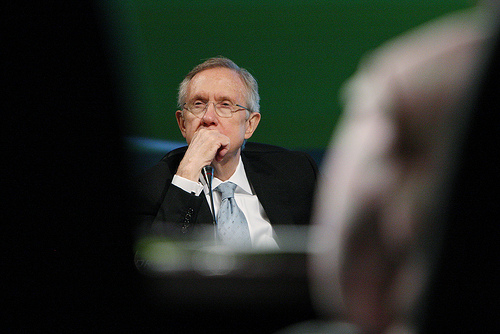Is cap-and-trade officially out of the picture in the Senate? That appears to be the message from Sen. Lindsey Graham (R-SC), a key senator working to formulate a comprehensive energy and climate bill. “Cap-and-trade is dead,” Graham declared last week, according to a Washington Post piece on a meeting he held with environmentalists.
Graham, John Kerry (D-Mass.) and Joe Lieberman (I-Conn.) may release a draft of their plan to price carbon dioxide pollution as early as this week, according to reports. The pricing part of the bill has remained one of the key sticking points, Kerry told reporters last week, and they are considering a variety of alternatives to a cap and trade mechanism—from cap-and-dividend to a carbon tax to a bill that targets specific industries instead of imposing an economy-wide cap.
It seems most likely that the senators will run with some combination of these different systems. From the Post:
Power plants would face an overall cap on emissions that would become more stringent over time; motor fuel may be subject to a carbon tax whose proceeds could help electrify the U.S. transportation sector; and industrial facilities would be exempted from a cap on emissions for several years before it is phased in. The legislation would also expand domestic oil and gas drilling offshore and would provide federal assistance for constructing nuclear power plants and carbon sequestration and storage projects at coal-fired utilities.
Cap and trade has long been regarded as the most politically feasible option to rein in greenhouse gas pollution. That Kerry, Graham and Lieberman are considering dropping the idea is evidence that it has now become politically unpalatable. The three senators are slated to have a number of meetings with colleagues this week as they hammer out the final details of their proposal. But, Kerry said last week, the system they’ll offer for regulating emissions “will be different than anything that has been put on the table in the House or Senate to date.”














